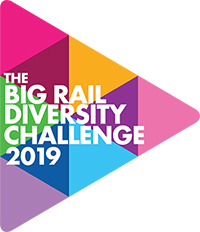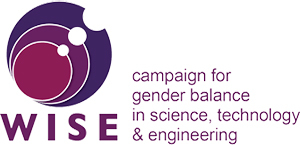
Opportunities and Risks Facing the Rail Industry in 2019
rail skills shortage, Rail industry, IR35...
There has been a lot of talk around the future of the Rail Industry in recent times, with many questioning what the future holds, so we took a look at the industry to date and summed up the opportunities versus the risks.
High profile projects
Opportunities: First off, let’s talk about the huge opportunities available through large projects such as HS2, Northern Powerhouse Rail, Crossrail and Crossrail 2. These are all very exciting, high investment projects that have years’ worth of work ahead and require a massive workforce, allowing workers to enjoy a sense of job security.

Risk: However, it’s no secret that there is a skills shortage in the rail industry. This leaves many businesses worrying about the hit these projects will take due to a lack of available workers, which in turn will result in increased budgets and delays to get the work completed.
But don’t lose hope yet; there are solutions out there.
Attracting a new generation
According to an article by infrastructure experts AECOM, “The rail industry, indeed, the engineering industry as a whole, needs a more joined-up response involving government and education to drive the long-term development of the UK’s engineering talent,” and we’re inclined to agree.
Risk: Figures show that over 40% of all professionally registered engineers are ages 50+, and it is estimated we need to double the amount of graduates and apprentices in order to meet 2020 job demand. With an ageing workforce, new ways must be considered to attract a new generation of workers to the rail sector, which leads us to the rise in apprenticeships.
Apprenticeships & graduate opportunities
Opportunity: There are a number of schemes and courses that have been set up to provide keen, young minds the opportunity to kick-start their career in the Rail industry.
Firstly, let’s discuss The National College for High Speed Rail (NCHSR). Following the launch of their apprenticeship programme, NCHSR have received a lot of support and attention from businesses and as a result, they are currently on track to reach their target of 396 learners at the college by the end of the academic year.
It's also worth highlighting the UK-wide Rail Design Apprenticeship scheme, which emerged in 2015. Since the launch of this fantastic scheme, it has provided career starts for 56 apprentices across the industry. Their accredited graduate programmes provide routes into specialist rail signaling, traction and electrification disciplines.
Employers are reluctant
Risk: Even though apprenticeships are a great way to get your foot in the door, some business are apprehensive. The apprenticeship levy* came in to play in 2017, yet recent figures show four in five levy-paying businesses are yet to take on a single apprentice. When asked, employers revealed the reason they are reluctant to go down the apprenticeship route is they struggle in allowing employees the 20% of time required to attend offsite training, due to extremely busy work conditions (as the saying goes, time is money). Employers also say travel to training centres can be inconvenient for apprentices or simply too far away.
Training apprentices and upskilling workers can be time-consuming to bring them up to speed, and employers are feeling the heat as competition for staff increases.
Pay remains high to attract candidates in a skill-stretched industry
Risk: In an industry where competition is hot for skilled candidates, Rail businesses have had to adjust budgets and pay higher salaries to attract the best talent.
Neil Robertson, Chief Executive of the Skills Academy said the industry’s productivity was, “6 per cent lower than it would be if it could recruit staff with the right skills. Wages in the industry were 6 per cent higher than they would be if labour supply were not constrained.” So with lower productivity and higher wages what can businesses do to bridge the gap? We explore the options.
More diversity and transferable skills outside the Rail industry
The rail industry requires 50,000 new workers to replace those retiring by 2033, with many new workers needing training in new technology to meet the changing demands of the market. UK Rail Minister, Andrew Jones recently expressed that, “the rail industry is in need of more digital skills and greater workplace diversity going forward.”
Opportunity: The Government has made a commitment to boost diversity in the sector, by increasing the proportion of women taking up technical and engineering apprenticeships to at least 20% by 2020. With groups such as Women in Rail and The Big Rail Diversity Challenge, as well as ongoing work by the WISE Campaign, diversity is being made a bigger priority within Rail and Infrastructure, but more needs to be done to close the gender gap.


To further widen their approach, Rail businesses, are encouraged to be more open to accepting candidates from other sectors with transferable skills, particularly military veterans. Bernadette Westmoreland, UK Head of Human Resources for Bombardier Transportation, discussed their creative workforce plans with the Financial Times, explaining how they upskill candidates from other sectors. She highlighted an example of Bombardier hiring mechanics who are trained to use their diagnostic software.
This technology saves time and resources needed for physical testing of trains to diagnose problems, increasing productivity, and creating new roles, whilst simplifying the process.
IR35 set to hit the private sector
Opportunity and Risk: With the IR35 reforms set to hit the private sector in April 2020, Rail businesses must prepare sooner rather than later. Failing to do so will result in their workforce hiring suffering and projects potentially being delayed, whilst risking serious non-compliance from HMRC. Take a look at the lessons learned from IR35 in the public sector and read the proactive steps HR professionals can take to prepare a solution, in our recent article.
Creative recruitment solutions
Whilst there are a number of risks facing the rail industry, let’s not forget the bigger picture, with opportunities to produce proactive and robust candidate attraction plans, including training, upskilling, transferable skills, diversity campaigns and technology.
Talascend International have been working in the Rail and Infrastructure sector for over 30 years, building up valuable knowledge and experience, along with a wide network of skilled rail candidates.
If you need Rail recruitment support, with value added guidance, call our friendly team today on 0161 507 8370 or email manchester@talascendint.com
Source 1: NCHSR
Source 2: AECOM
Source 3: Gov.uk
Source 4: Financial Times
Source 5: Global Railway Review
